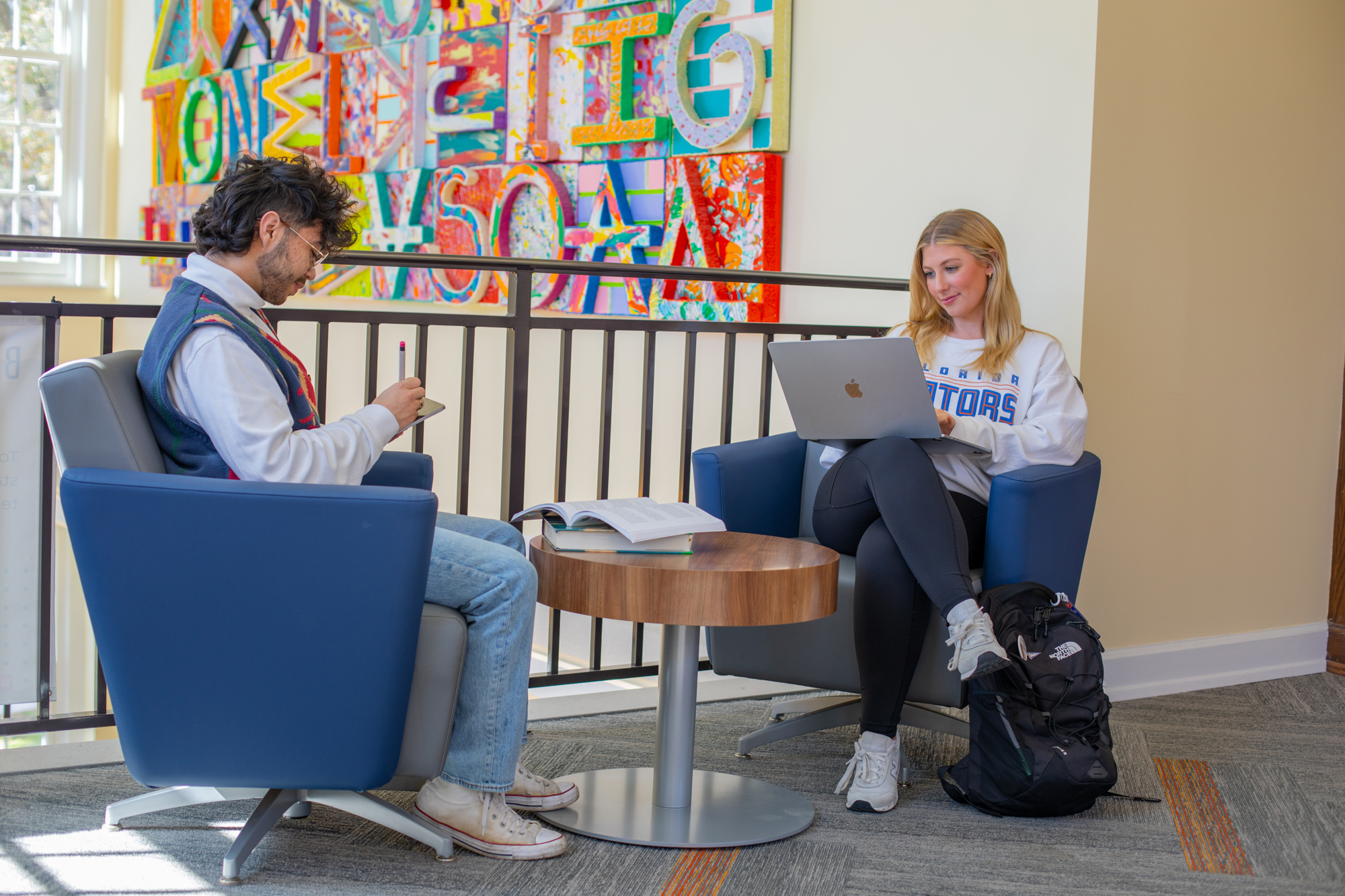Communications Guide
Based in sound research and strategic planning, we work with you to implement a variety of communications tactics designed to meet programmatic and organizational objectives.
Some of the services offered by ETC include:
- Communications strategy and planning
- Issues and crisis monitoring and response
- Media Relations
- Publication copywriting and editing
Learn more about college communications.
We want to hear from you. Fill out the form on the Helpdesk homepage or contact news@coe.ufl.edu.

Boilerplate Text for Grants
Consider including this content in your next grant application to partner with ETC for your communications needs.
Communications at the UF College of Education
To ensure maximum exposure of the project the University of Florida College of Education will develop and enact a strategic communications campaign(s) designed to reach target audiences in efforts to achieve defined objectives in support of the programmatic goal(s). University staff will use a mix of paid, earned, shared and owned media dependent upon the specified objectives, budget and timeframe to distribute information through a variety of delivery mechanisms.
Tactics may include, but are not limited to:
- community relations,
- direct mail,
- email marketing,
- print collateral,
- in-person meetings,
- media advisories and news releases,
- newsletters,
- public service announcements,
- social media,
- special events,
- videos,
- webinars,
- and website development and design.
Communications campaigns for dissemination of the project will be managed by the college news and communications team, housed within the E-learning, Technology and Communications Services (ETC) department, in collaboration with the project grant/research team. As a full service unit in the College of Education, ETC supports the teaching, research, and outreach activities of the college by facilitating effective communication strategies, innovative online technologies, and reliable technical infrastructure. ETC offers consultation, programming services, creative services, and technical administration for the college’s grants and internal processes. ETC has full-time staff available to assist faculty with their research projects including server side developers, videographers, graphic designers, illustrators, instructional designers, public relations and marketing communicators, and web designers.
Communications efforts are typically led by the public relations and marketing staff and supported by the broad skill set of the department. Communication campaigns are implemented using best practices established by industry trade associations, e.g. Florida Public Relations Association, and higher education research entities, e.g. Institute for Public Relations, in conjunction targeting based on demographic, psychographic and behavior analytic data, e.g. Google Analytics and Facebook Analytics, for owned digital channels.
College Communications Style Guide
The college’s communications office incorporates standards set by the University of Florida, the Associated Press (AP), along with an internal style guide for the college. Clear and consistent style helps to position the college within the university and among our nation’s top colleges of education.
Key Style Guide Excerpts
Our Name
The University of Florida College of Education is the institution’s official name and is used on all formal occasions and on first reference. On the second and additional references, “Florida” is recommended. For further references for brevity and limitation of space, “UF” should be used.
Similarly the University of Florida College of Education is the official name of our college. College of Education or “college” is acceptable on second and additional references.
Use College of Education, not COE. Confusion has occurred between the UF Colleges of Education and Engineering, along with misunderstanding of the acronym by external audiences. COE may be used for informal, internal college communication, e.g. emails between college staff or faculty, but should generally be avoided.
Capitalization
Do not capitalize common uses of university or college.
Capitalize the full names of schools, major centers and institutes, but not departments, programs, or curricula.
Lowercase references to courses and classes, e.g. I teach counselor education classes. Uppercase specific class names and proper nouns are in the title: School Psychology 2000 or English 1000.
Other common style dos and don’ts:
- Use advisor not adviser
- Don’t capitalize professor
- Capitalize Gators and EduGators
- Capitalize semesters (Fall 2024), but not seasons (spring, fall)
For more information, visit the UF Brand Center Writing Style Guide or contact news@coe.ufl.edu.
Public Records
To submit a public records request, please visit the Public Records Center Website.
Helpdesk Resources
Course Accessibility
Get info and resources about improving accessibility in your online courses.
Communications Guide
Access language and a comprehensive guide to ensure consistent, clear messaging in your grant proposals and communications media.
Faculty Resources
Explore faculty resources, including professional development opportunities, UF services, and key College information.
Brand Resources
Explore our brand resources, including logos, templates, and marketing materials, to help you navigate our services with ease.
IT Resources
Information on setting up your internet connection and using UF’s Virtual Private Network (VPN).

